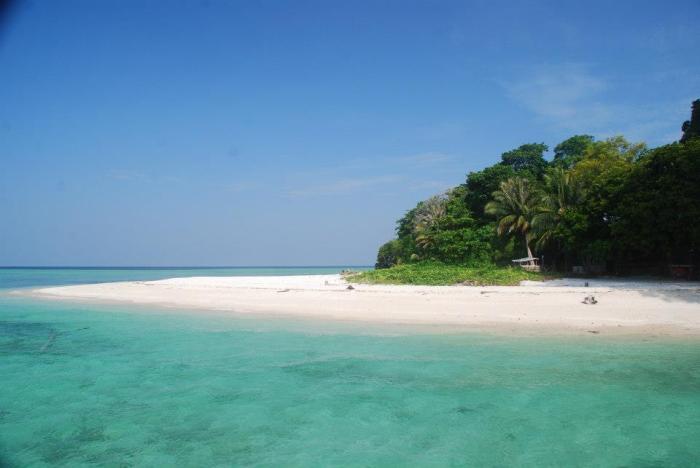by Amy McLoughlin
“Rugged mountains reach dramatically for the sky while their rainforest-clad slopes sweep down to floodplains teeming with forest life. Cool highland hideaways roll down to warm, sandy beaches and rich, humid mangroves”
This is the beautiful, wildlife rich Malaysia that Tourism Malaysia describes – a tourism destination thriving on its natural assets.
Inevitably, millions of tourists have some impact beyond economic. For seven years, Wild Asia has been championing the need for tourism to shift to a more environmentally and socially responsible industry. ‘Responsible tourism’ ensures destinations are safeguarded – benefiting the lives of local people, protecting the environment and providing authentic holiday experiences for visitors.
Responsible tourism is big business:
- About 10% of tourist arrivals (that’s 2.4 million people) to Malaysia are nature tourism related travel (Economic Transformation Programme, 2010).
- Since 1995, the government has recognized the need for protecting nature tourism sites for ecotourism (National Ecotourism Plan, 1995).
- In 2005, the National Physical Plan highlighted the importance of nature-based tourism to be sustainably developed and promoted.
- A staggering 93% of people said they would purposefully partake in environmentally-friendly travel (Lonely Planet survey, 2007).
- Tourists are willing to pay 10% more to ensure their holiday destination of choice is sustainably managed (Visa and PATA Asia Pacific Intentions Survey, 2010).
While Malaysia clearly has an abundance to offer tourists seeking back-to-nature adventures or retreats, it’s time tourism stepped up to the mark, to satisfy eco-conscious travellers and play a bigger part in reducing its impact on the environment and communities.
Irresponsible tourism management can lead to a whole host of problems, such as exploitation of communities, pollution and disruption to wildlife. Motivations to travel often include the desire to experience unique ways of life and awe-inspiring nature. There is a clear link to conserve the ‘golden goose’ to support sustainable tourism.
Since 2006, Wild Asia have hosted Asia’s only Responsible Tourism Awards (RTA), rewarding best practice in sustainability across our region. Amongst the entries for 2012, we’ve found some inspirational home-grown initiatives.
The most recent is the 2012 RTA Winner ‘Best in Protection of Natural Areas and Wildlife Conservation’ – Scuba Junkie, Mabul, Sabah.
Often sacrificing profit for the environment, this dive resort takes sustainability seriously. We particularly love their engagement with their Bajau neighbours. To reduce destructive rubbish pollution, Scuba has led the way to raise RM70,000 to introduce waste collection.
One recent initiative Wild Asia has undertaken is to study Malaysia’s most desirable nature-based tourism sites against the Global Sustainable Tourism Council’s Criteria (GSTC) for Sustainable Destinations.
Findings revealed a need to radically rethink the way in which we manage our protected areas as both beacons of conservation and thriving tourist destinations. The heart of our vision is to see ‘Destination Partnerships’ become a reality – government, private sector and NGOs working to improve the quality of our flagship ecotourism destinations. We are excited that some pilot initiatives are already underway, for example:
Tourism business and NGO partnership: KiTA (Kinabatangan Tourism Operators Association) appreciates that tourism in the Kinabatangan Corridor is entirely dependent on the environment and wildlife. As a result, local businesses and WWF joined forces. They introduced a pioneering conservation levy at participating operators to fund important projects. These funds are then utilized within the destinations for conservation and other activities. To date they have raised around RM500,000.
Another direction for Malaysia is to focus on quality systems that can meet or exceed international expectations. One such international scheme is Travelife the world’s most far reaching sustainable tourism certification scheme for hotels. This is a business-to-business initiative that has been developed through the demands of a number of large EU-based tour operators, like Thomas Cook and TUI. Malaysian businesses will be able to tap into the high yield European market with this certification.
Countries like Australia are reaping the benefits of a green tourism industry. Their nature-based tourism sector alone contributes A$23 billion to the economy each year (Australia Tourism and Transport Forum, 2012). For Malaysia to gain similar achievements we need to focus on improving the sustainability of our destinations and drive for excellence within the tourism businesses. By aligning our efforts to international benchmarks, such as GSTC and Travelife, it ensures a credible path to sustainability and international branding.
For more information on Wild Asia’s work in sustainable tourism: tourism.wildasia.org
** this article was published in Business Circle, Malaysia.



